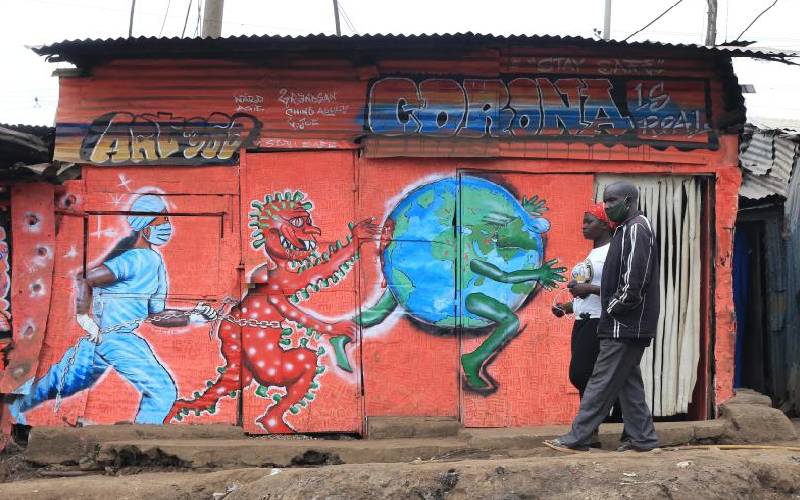×
The Standard e-Paper
Join Thousands Daily

Graffiti of coronavirus message in Kibra, Nairobi. [Stafford Ondego, Standard]
Asymptomatic Covid-19 patients or those with mild symptoms and not suffering from other multiple disorders qualify for home-based care.